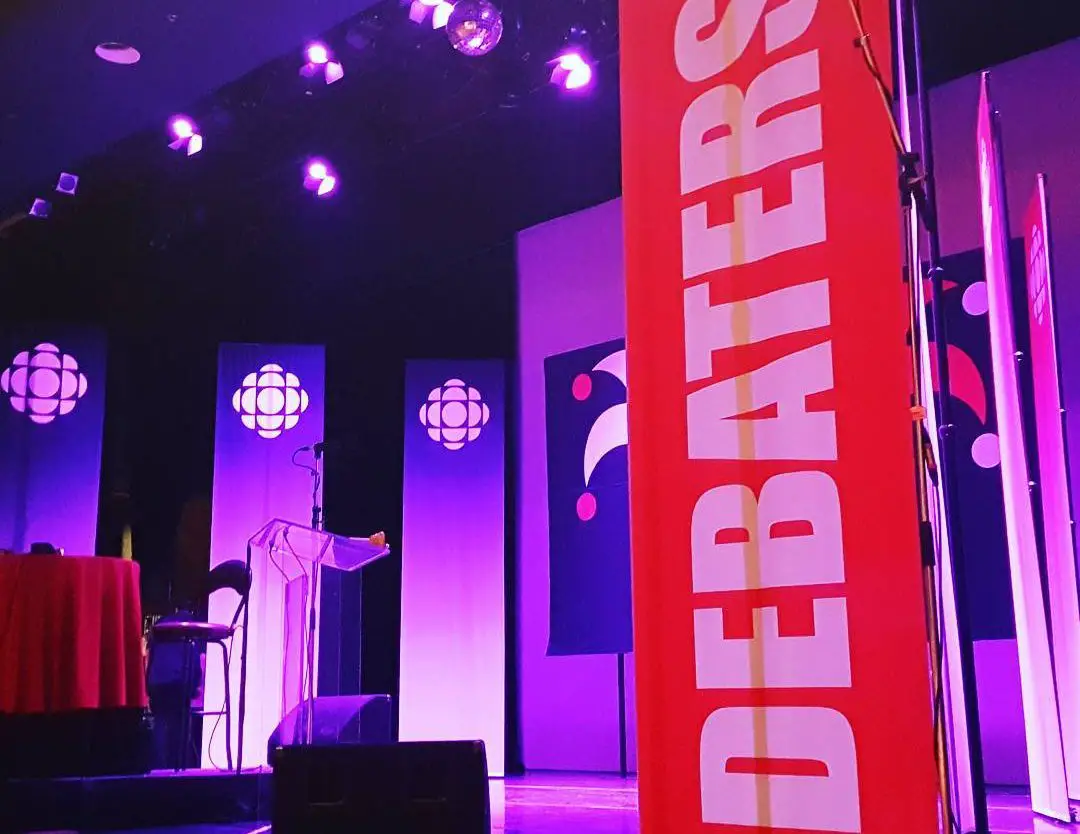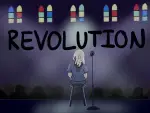Canada is a foremost world producer of lumber and iron, yet there remains another natural resource in our backyard just waiting to be tapped: comedy. From “Saturday Night Live” creator Lorne Michaels to the crude and lovable Seth Rogen, citizens of our country have made an indelible impact on the comedy industry. “The Debaters,” a long-standing radio show produced by the Canadian Broadcasting Company, is a shining example of our nation’s diverse range of comedians. The program also demonstrates a distinctly Canadian sense of “humour” — a kind that is inoffensive, civil and spelled with a ‘u.’
Steve Patterson hosts the weekly radio show and podcast with a booming voice. He welcomes the audience with a warm, energetic, “From CBC Radio Live … it’s ‘The Debaters’!” Each week, two stand-up comedians square off face to face in mock parliamentary style debates.
The first few rounds are scripted, but as the debate rages on, the comedians must think on their feet and improvise witty rebuttals that outdo their opponent’s arguments. The live audience then chooses the winner at the end of each debate through the fervor of their applause.
The topics of the debates are often ridiculous. One week, the comedians devoted 15 minutes to arguing the merits of ketchup versus mustard. Halfway through the debate, a third debater arrived to campaign for the supremacy of relish. Another recent episode focused on whether visiting a dump is an ideal family outing.
Yet the topics can also be based on real political and social issues affecting Canadians. Since the radio show’s founding in 2006, “The Debaters” has introduced topics such as same-sex marriage, free speech and even Canada’s official bilingualism policies; in recent seasons, they’ve covered Canada’s maltreatment of its indigenous population. Regardless of the gravity of the debate’s topic, every episode features a diverse set of Canadian comedians showing off their impressive comedic chops.
Oftentimes the more political debates focus on subjects pertaining to current events. In a recent episode, debaters argued whether Alberta should secede from the rest of Canada; recent tension over the government’s planned expansion of the Trans Mountain Pipeline has rendered Alberta a hotbed of conflict regarding economic class privilege and climate change.
The debate could’ve capitalized on the province’s current political conflicts and devolved into 15 minutes of insults about small-town hicks and the mistreatment of First Nations peoples. Still, the humor does not veer in that direction. The comedians keep the conversation light and playful; the comments poke fun at the tensions at the heart of Canada’s political debates, sure, but the punchlines are never directed at the marginalized communities themselves. Instead, the comedians highlight the silliness of the situation, and prefer self-deprecation or light ribs directed at one another over any deep digs at a minority group.
Midway through the debate, Quebec comedian Derek Seguin quips, “I lived through both referendums, and it’s caused tension among the people. People that otherwise would get along so good … like the English and French people.”
It is not that “The Debaters” shies away from political comedy. On the contrary, some of the show’s funniest moments occur when a comedian makes an acute observation about Canada’s unique demographics and social entanglements. What is laudable is how the jokes usually do not hound at any one person or group. The comedians “punch up” or sneer at each other, but they do not “punch down” and dismiss the experiences of Canadian minorities.
Similarly, one episode frames the debate topic around sexual education. Comedians argue whether “the talk” should occur in a classroom environment or whether the topic is better left to the responsibility of parents at home.
This episode arrived in November 2018, at a time when sex ed was an especially pertinent topic in Ontario news outlets. Premier Doug Ford recently revoked the province’s health and physical education curriculum; the rescinded, more progressive curriculum discussed gender identity with candor and devoted pages to equipping children with tips for stress management. Under Ford’s premiership, the province has returned to the 1998 model of sex ed, which came into place before the legalization of same-sex marriage in the country and ignores any mention of consent.
Again, the debaters recognize the real political conflict inherent to the debate’s topic, but the show’s comedic nature allows the performers to find the levity in otherwise heavy issues. Comedian Charlie Demers jokes that without a formal education on sex embedded in teens’ curriculums, Ontario graduates “will think that a Fallopian Tube is an internet video site from the Philippines.”
On the other side of the coin, John Cullen, a teacher, argues that sex ed should be left to the discretion of the students’ parents. He laments about the type of comments he receives from students in his suggestion box at school: “Oral sex doesn’t mean talking about sex!”
In a recent interview for the University of Toronto, Lorne Michaels reflected on how his Canadian upbringing prepared him for his career at “Saturday Night Live.” He tells the interviewer, “Canada is one of those places where you can speak your mind and say things that are polite and yet not flattering, and not worry about being shot.”
He is being facetious, of course, but there is an element of truth to Michaels’s observation. In an age where American politics have become increasingly polarized and college campuses shroud themselves in echo chambers of like-minded ideologies, we must recognize and praise the spirit of civil discussion that characterizes Canadian comedy.
So perhaps what is most remarkable about “The Debaters” — and perhaps what has kept the show ticking for so many seasons — is the way the program uses comedy to foster actual discussion between opposing sides that would otherwise never see eye to eye. Simply put, it is a comedy show specifically designed to break down barriers between opposing arguments, however silly or serious said arguments may be. The comedians illustrate how any idea has an element of ridiculousness to it if taken to its logical extreme.
Whether on my commute to work or on a run in the park, I look forward to listening to more episodes of “The Debaters” in the future. I hope my American neighbors will also tune in to this delightful podcast. It is beneficial for any healthy society to be able to openly debate — and laugh at — even their most rigid and reverent ideas.
















